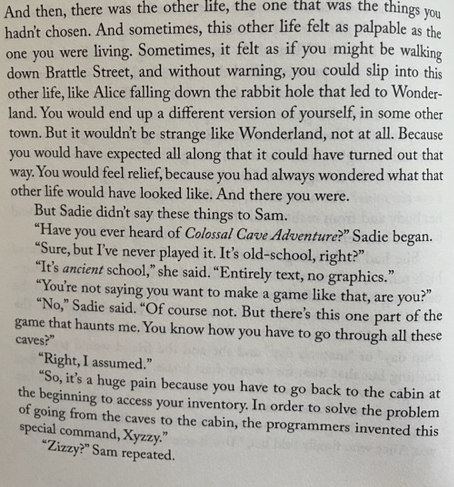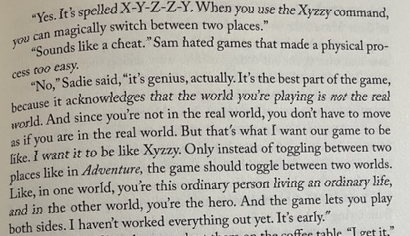I dunno if many folks here have read Tomorrow and Tomorrow and Tomorrow by Gabrielle Zevin - it’s a literary fiction novel from last year about a pair of game designers working through the 90s, aughts, and teens, and despite the nerdy premise it was pretty big (it made the NYT notable books list, among a bunch of other plaudits). I thought it was generally pretty good, and got almost all of the video game stuff right (the take on how producers work seemed to be a little confused with how they work in Hollywood, and the author really should have put an acknowledgment of Brenda Romero in there since she includes a game that seems directly inspired by Train). Anyway worth reading on its own merits, but there’s also a blink-and-you-missed it bit relevant to IF!


Pretty cool, though of course anti-kudos to whichever copyeditor insisted on “Xyzzy” (and, er, to me for my terrible job taking pictures of the pages) plus the description of how the inventory works is confused. The dig on text games being ancient school I thought was loving, since this conversation is meant to be happening in the late 90s but when the timeline advances twenty years there’s a reference to one of these characters dabbling in interactive fiction. Anyway I thought that was a fun reference to come across in something so mainstream so figured I’d share it!